Nonalcoholic drinks
It's important to stay
well hydrated in pregnancy to combat fatigue and avoid constipation,
which is a common side effect of pregnancy due to a sluggish digestion
brought about by hormonal changes in your body. The advice is for you to
aim to drink around one quart of fluid every day. This fluid should
come mainly from water, but there are other good sources of fluids
including herbal teas (avoid raspberry leaf tea
until later in pregnancy), fruit juices, and milk. However, try to
drink skim or low-fat milk. Avoid, or limit your intake, of drinks
containing caffeine, including tea, coffee, and carbonated drinks, since
caffeine interferes with your absorption of vitamins, and it has have
even been linked to an increased risk of miscarriage. Drink no more than
two cups of caffeinated beverages each day.
Staying hydrated:
A fruit cocktail is a delicious treat and a satisfying alternative to a glass of wine.

Cravings Should you give in to a food craving?
No one is
really sure what causes food cravings in pregnancy, although it may be a
mixture of hormonal, physical, and psychological factors.
The most common
cravings are for sweet or salty foods; these are OK to indulge now and
then, but are lacking in nutrients so try to limit your intake.
Cravings for foods such as fruit or fish may be a natural desire to eat as healthily as possible in pregnancy.
Strange cravings, known as “pica,” for items such as soap, may indicate an iron deficiency—and should not be indulged!
NOTE
Try not to feel daunted by the seeming barrage of information available; in reality, just a few dietary precautions are needed
NOTE
One of the most sensible approaches to eating in pregnancy is to allow yourself most things in moderation
NOTE
Ensuring the future
health of your baby starts now, at the beginning of life. Eat healthily
to do what is best for you and your baby
Pregnancy diet Eating for you and your baby
A healthy diet is
important at any time, but is especially crucial during pregnancy to
ensure that you and your baby have all the right nutrients needed; it
will help your baby develop and grow, and help you keep fit and well.
Eat a wide variety of different foods each day to get the right balance
of nutrients, and avoid certain foods that may be harmful to your
growing baby (see What To Eat…What Not To Eat).
Fruit and vegetables
Try to eat at least five
servings of fruit and vegetables each day, especially iron-rich green
leafy vegetables. These provide essential vitamins and minerals and
fiber, which helps digestion and prevents constipation. Ideally, eat
them lightly cooked or raw. Frozen, canned, and dried fruit and
vegetables are good alternatives.
The importance of iron
Iron is essential
for the production of hemoglobin, and you will need to up your intake in
pregnancy to support the increase in blood volume. If your diet lacks
iron, you may feel very tired and may suffer from anemia. Lean meat, eggs, green leafy vegetables, dried fruit and nuts, and fortified cereals all contain iron.
Starchy foods
Starchy foods, such
as bread, potatoes, rice, pasta, yams, and breakfast cereals, should
form the main part of any meal and are an important source of vitamins
and fiber. Try eating whole grains—bread, cereals, and pasta—since these
contain more fiber and can prevent constipation.
Proteins
You should have two to
three servings of lean protein each day. A serving of protein is 2 oz
lean meat, poultry, or fish; 2 tbs peanut butter; two eggs; 4 oz tofu
(bean curd). Avoid liver (including liver pâté) since it contains high
levels of vitamin A, which can increase the risk of birth defects.
Dairy foods
Foods that contain milk,
such as cheese and yogurt, provide calcium, which is essential for
healthy bones. It is important that your calcium intake is high before
and during pregnancy. Avoid nonpasteurized soft cheeses (such as
Camembert, Brie, and Chèvre) and blue cheeses, since these may contain
the harmful bacteria listeria.
Fluids
During pregnancy your
blood volume will increase, so it is important to keep up your fluid
intake. Water is best, although fruit juices are also good (see Non-alcoholic drinks). Try to restrict your intake of coffee and tea to two cups per day. Alcohol is not recommended (see Fetal Alcohol Syndrome).
Foods to cut back on
Limit your intake
of fatty and sugary foods and carbonated drinks, since they contain
calories but few nutrients. (Limit diet soda intake as well, since the
full effects of artificial sweeteners are not well understood.)
Vegetarian diet
This needs to provide a
sufficient intake of iron, calcium, vitamin B12, and protein. Include
dairy products, legumes and beans, fortified cereals, eggs, seeds and
nuts, and green leafy vegetables in your diet, and talk to your doctor
about taking a supplement if necessary.
Light meals:
A freshly prepared salad
is an ideal light meal during pregnancy. Unlike “bulky” foods, it is
easy to digest and also boosts your intake of essential vitamins and
minerals.
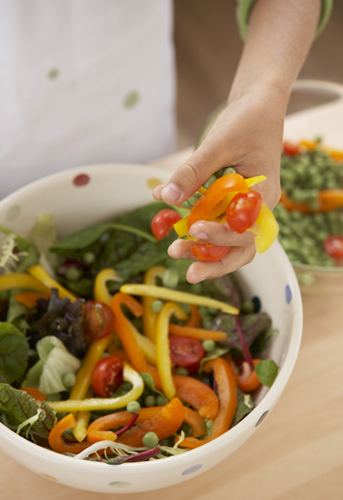
Recommended daily servings
3–4 servings of vegetables:
A helping of raw or lightly cooked vegetables provides vital vitamins and minerals.
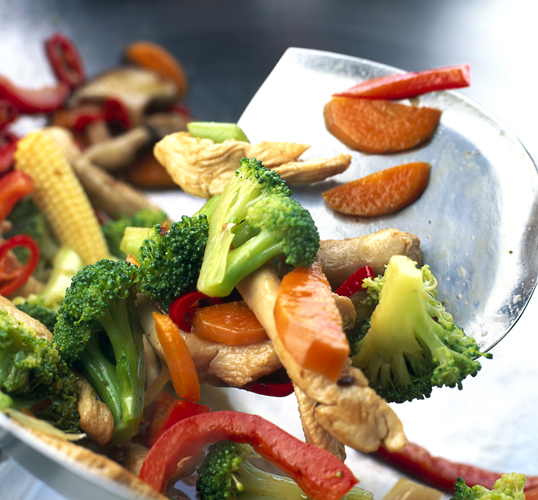
4-6 servings of carbohydrate:
Whole-wheat breads and other complex carbohydrates help sustain energy levels.
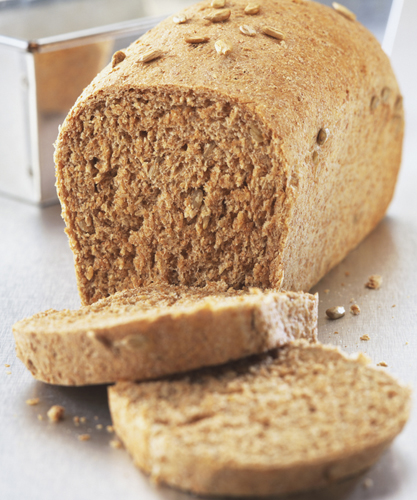
2-3 portions of protein:
A daily intake of protein, such as meat, fish, legumes, or cheese, ensures the healthy functioning of cells.
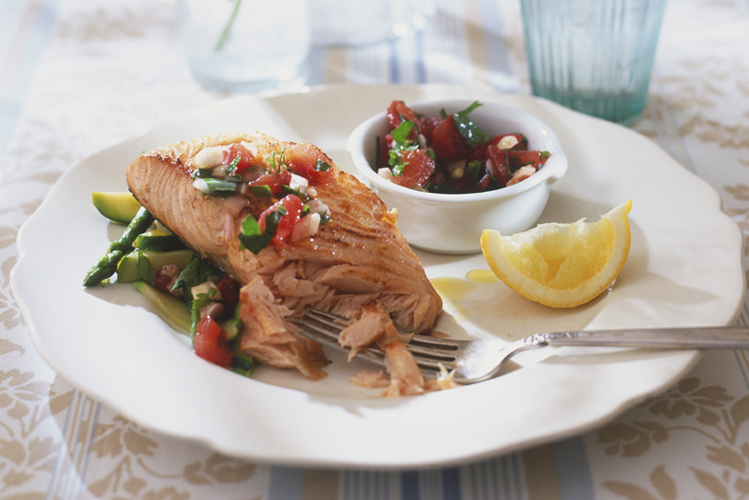
1-2 servings of eggs or cereals:
Including foods that are rich in iron is important in pregnancy to prevent anemia.
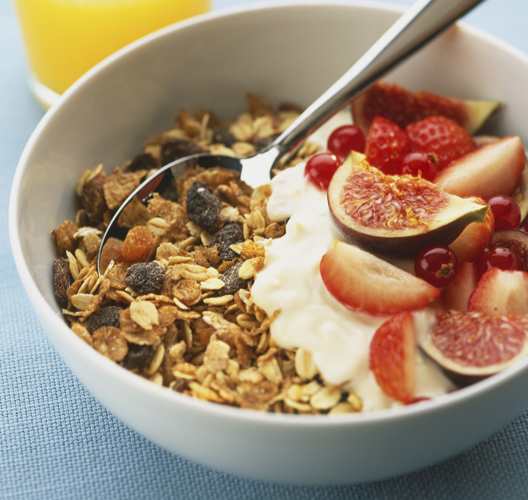
2-3 servings of low-fat dairy:
Dairy products, such as low-fat milk, are an excellent source of calcium, fats, and protein.
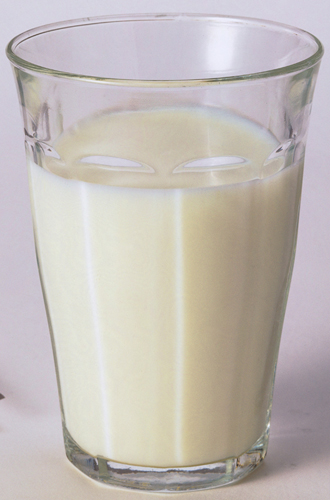
5 portions of fruit:
Include a range of different fruits. These are rich in antioxidants, fiber, vitamins, and minerals.
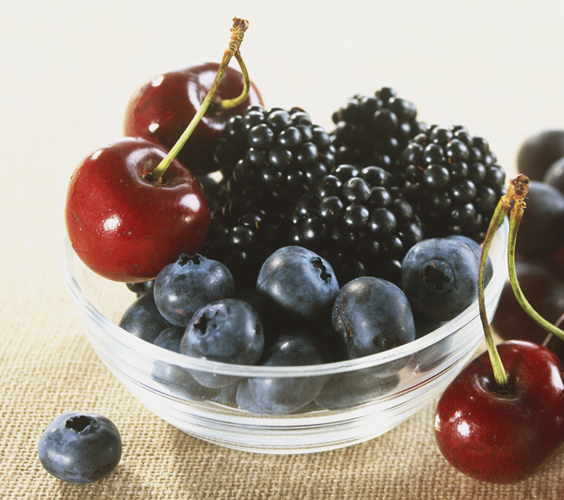
Myths and misconceptions Is it true that…
| Q: |
You lose a tooth for every baby?
|
| A: |
Pregnancy
doesn't have to ruin your teeth. There was some basis for this myth back
when nutritional deficiencies meant that women might have insufficient
calcium to support an unborn baby's needs.
Calcium is vital for all women, and your midwife or doctor may
recommend that you take a calcium supplement. Good food sources of
calcium include: dairy products, green leafy vegetables, canned sardines
with the bones, fortified tofu, and fresh fruit juice.
|
| Q: |
Sweet cravings mean it's a girl, sour cravings mean it's a boy?
|
| A: |
Many
people believe that cravings can predict the sex of your baby. So, if
you can't get enough chocolate, you're having a girl, but if you crave
straight lemon juice then you're having a boy.
However, according to some scientists, cravings don't even exist! There
is also the myth that if your partner puts on weight during your
pregnancy, then you will be having a girl. If he doesn't put on a pound,
then you're carrying a boy.
|
| Q: |
Heartburn means hair?
|
| A: |
Heartburn is very common in pregnancy—chalk it up to pregnancy hormones loosening the muscles of your esophagus. But no, it doesn't mean that your baby will be born with a full head of hair!
|